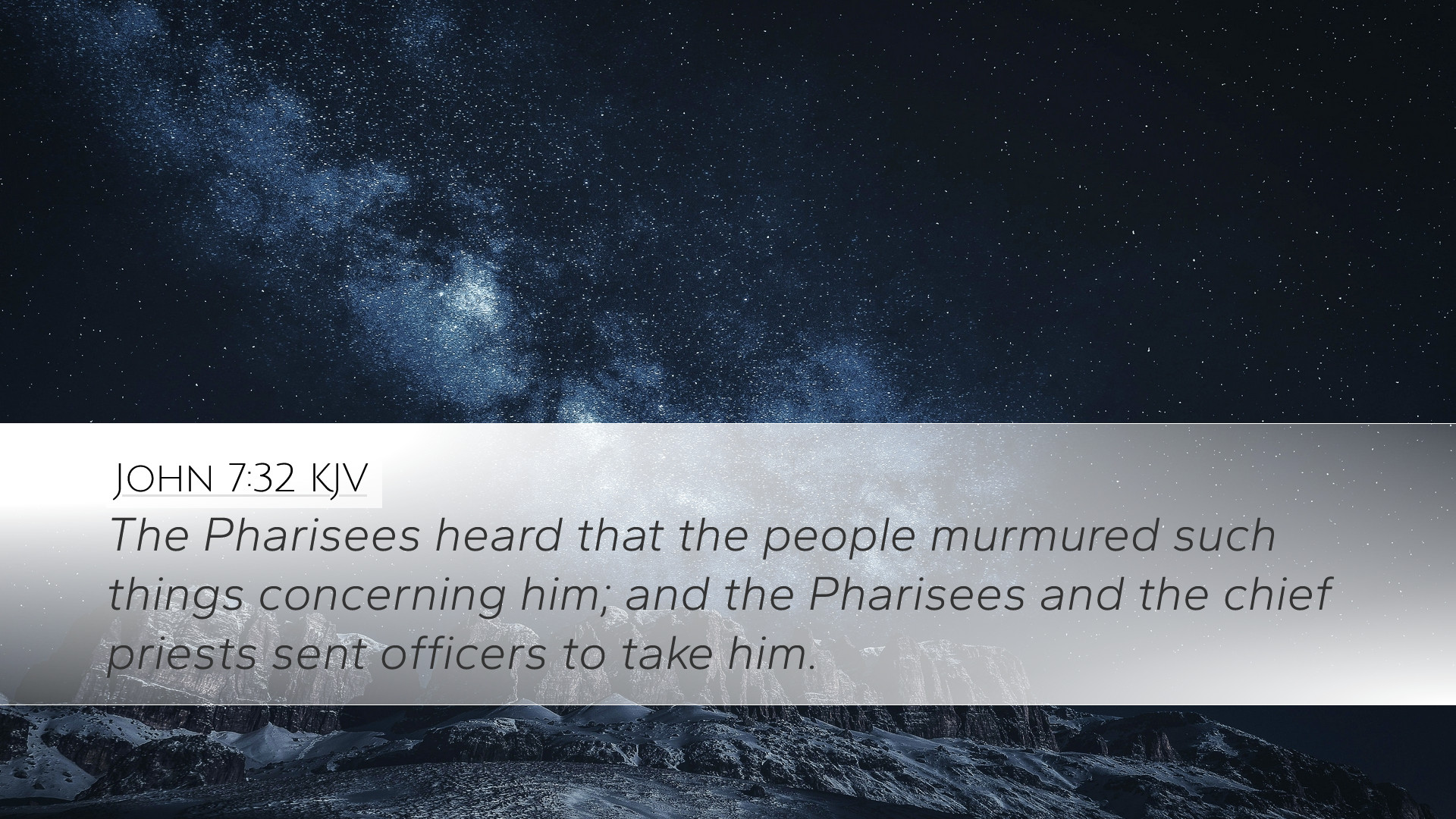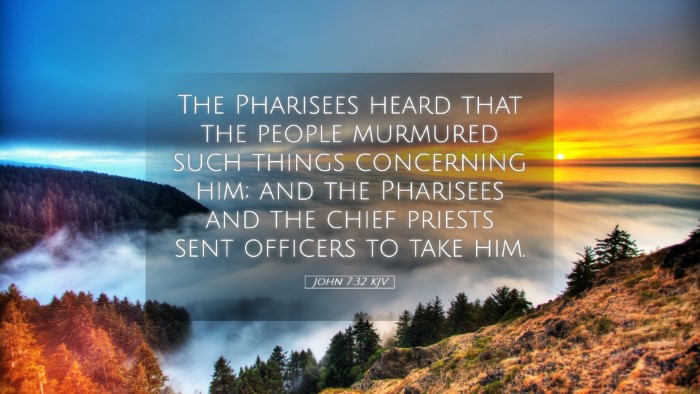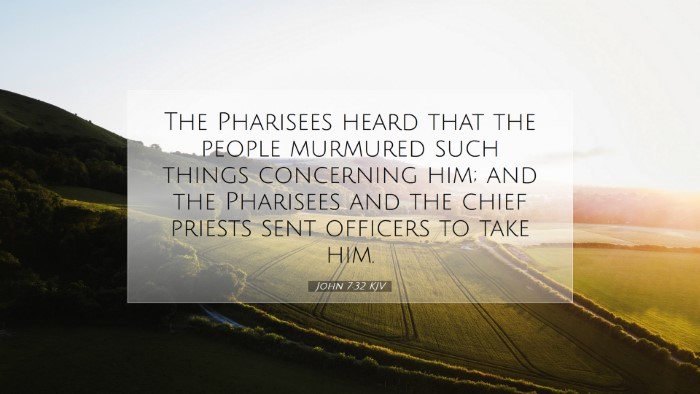Commentary on John 7:32
John 7:32 states: "The Pharisees heard the crowd muttering these things about him, and the chief priests and Pharisees sent officers to arrest him." This verse captures a critical moment in the Gospel of John, highlighting the tension between Jesus and the religious leaders of His time. Below is a consolidated commentary based on the perspectives of notable public domain sources such as Matthew Henry, Albert Barnes, and Adam Clarke.
Contextual Background
The public discourse about Jesus during the Feast of Tabernacles presents a backdrop filled with division and confusion. While many in the crowd recognized the weight of His words, the leaders were increasingly threatened by His growing popularity. As noted by Matthew Henry, this was a pivotal period where the characters and intents of those involved are laid bare, particularly the animosity from the Pharisees and religious authorities.
The Characters Involved
- The Pharisees: They represent the established religious order, steeped in tradition yet blind to the fulfilling of those traditions in Christ.
- The Chief Priests: As custodians of the Temple worship, their authority and influence were at stake with the teachings and miracles of Jesus.
- The Officers: Sent to apprehend Jesus, they symbolize the enforcement of the law against perceived threats to the religious status quo.
The Reaction of the Authorities
Albert Barnes emphasizes the importance of the reaction from the Pharisees and chief priests. Their decision to send officers reflects their desperation and determination to quell the growing support for Jesus. This action illustrates a key theme in the Gospels: the relentless conflict between light and darkness, truth and falsehood.
Fear of Losing Control
The fear that drove the Jewish leaders was rooted in a desire to maintain their power. As Adam Clarke points out, their response to Jesus' popularity was not only a protective measure but also an indication of their recognition that Jesus was a significant threat to their authority. They could not allow a potential leader or Messiah to arise who might lead the people away from their control.
The Mistrust of the Crowd
This verse demonstrates the palpable mistrust that existed between the authorities and the general populace. The mutterings of the crowd indicate a growing fascination with Jesus and the debate over His identity. Matthew Henry remarks on the irony of the situation: the very ones tasked with guiding the people towards the truth were blinded by their envy and hatred, preventing them from recognizing their true Messiah.
Theological Implications
In examining this verse, one must delve into profound theological implications regarding authority and the nature of Christ. Jesus represented a new paradigm that contrasted with traditional expectations of leadership and messiahship.
Authority and Submission
As Albert Barnes suggests, the reaction of the Pharisees underscores the challenges to their authority, emphasizing the spiritual blindness that kept them from understanding the true nature of Christ’s mission. The narrative shifts the understanding of spiritual authority from a position of control to one of servanthood, demonstrated through Jesus' life and teachings.
Call to Action and Discipleship
This moment serves as a call to action for believers. The decision of the officers sent to arrest Jesus invites consideration of one’s own stance towards Christ. Are we among those who seek to know Him, despite the obstacles, or do we turn away, influenced by prevailing opinions and the fear of authority? Adam Clarke exhorts readers to recognize their own spiritual inclinations. The reader is urged to stand in stark contrast to the fearful leaders and to embrace the fullness of truth embodied in Christ.
Conclusion
John 7:32 encapsulates an essential conflict in the Gospel narrative that is both historical and eternal. Observing the actions of the Pharisees and chief priests offers vital lessons for pastors, students, theologians, and Bible scholars today. As they navigate the complexities of faith, it serves as a reminder to remain vigilant against the spiritual pride that can blind believers to God’s ongoing work in the world.
As we reflect on this passage, let us not forget the call of Christ, who embodies truth and invites all to follow Him, even amidst opposition and uncertainty. The fervor of the Pharisees to silence the voice of Jesus stands in stark contrast to the open invitation He extends to all who seek Him. In our pursuit of understanding, may we always strive to align our hearts with His, rejecting the fear of men and embracing the hope of the Gospel.


